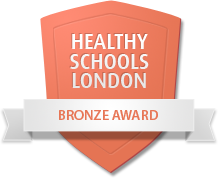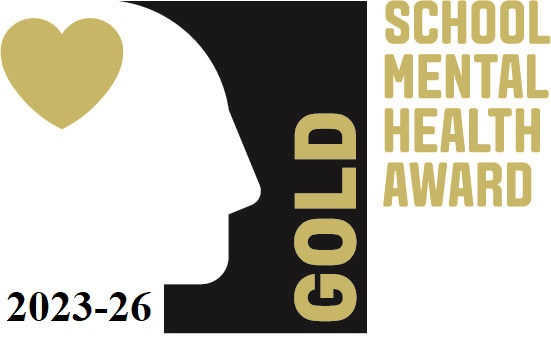Academic Curriculum Learning Offer
In KS1 at BTAM, we adopt an EYFS approach, with Focus and directed tasks alongside continuous provision. We are able to support children 1:1 or in very small groups during learning activities, and to provide further intervention when necessary.
Our main focus is to encourage the children to feel happy and safe so that they can feel motivated and confident to explore and play while learning.
We have a wonderful complement of very experienced Key Stage One practitioners, who create a fantastic learning environment by providing a balance of exciting and challenging learning opportunities to stretch the children academically whilst creating a calm and nurturing environment for them to progress.
Our Curriculum is broad, balanced and great emphasis is placed on the child’s individual needs and progress. We combine a variety of teaching and learning activities to help the children to learn through play as well as developing their journey on the learning of literacy, numeracy, science and phonics. By working with the children in small groups and 1-1, we are able to help the children develop in many ways and to prepare them for their academic journey beyond our provision.
What does a normal day look like in KS1?
Our team has a wonderful ethos where our children learn in a colourful and motivating learning environment. Our children enjoy a busy, well planned and stimulating daily timetable with an excellent mix of academic, fun and calming activities across the whole day. Our themes each week are focused around a particular Power of Reading book. We also incorporate annual celebrations such as Harvest, Diwali, Hannukah, Christmas, Chinese New Year, Easter and the seasons.
Every morning we start the day with breakfast. This is a good opportunity for the children to settle into the school routine and greet their friends. During this time, we are not only ensuring their bodies are fuelled to start to the day, but we also help develop with independence, self-help skills, speech and language and social skills.
After breakfast we draw the children’s attention to the visual timetable which helps them organise their day and feel settled knowing what is going to happen. We then have a literacy or numeracy whole class input each day. At this point the children can then explore our continuous provision. During this time we work one to one with children and in small groups on focused activities while the children access the newly built Outdoor Learning Area and our Early Excellence resourced classrooms.
The Early Years Foundation Stage Curriculum is organised into seven areas of development and learning, three prime areas and four specific areas.
Three Prime Areas:
- Communication and language
- Physical development
- Personal, social and emotional development
Four Specific Areas:
- Literacy
- Mathematics
- Understanding the world
- Expressive arts and design
The Prime Areas
Communication and Language
- Speaking
- Listening
- Understanding
Physical Development
- Moving and handling (good control and coordination)
- Health and self-care (healthy diet, basic personal hygiene – dressing and toileting)
Personal, Social and Emotional Development
- Self-confidence and self-awareness
- Managing feelings and behaviour
- Making relationships – cooperative play, taking turns
The Specific Areas
Literacy
- Reading
- Writing
Mathematics
- Numbers
- Shape, space and measure: size, weight, capacity, position, time, distance and money
Understanding the World
- The World
- People and Communities
- Technology
Expressive Arts and Design
- Exploring and using media and materials: songs, music, dance; materials- colour, design, texture, form and function
- Being imaginative: media and materials – uses and purposes; design, technology, art, music, dance, role-play and stories
The learning environment, activities and experiences are planned according to the above areas of Learning and Development. Some children will exceed these areas, others will continue to be working towards some or all of the areas. In all cases planning will be informed by observations and assessments of the children, enabling them to make good progress throughout their time with us.
Halfway through the morning, we will have fruit time where we come together and share any exceptional work and behaviour with the rest of the class. This is another good opportunity for speech and language and social skills to be practised. After we have regrouped, we have our daily discrete phonics session. Our phonics sessions follow the Letters and Sounds programme and we use a multisensory approach to learning letters and their sounds.
In the afternoons we gather together for a subject based sessions such as: Forest School, PE, Science, PSHE, Social skills, Write Dance and ICT. After this we have silver time, learning reflection time and class story time.
Our children are then given the opportunity to take part in other activities throughout the week such as Yoga, Cooking, Gardening. Through this multitude of opportunities, the children gain the independence and confidence needed for later in life. The children also have access to our weekly therapeutic wellbeing sessions with our highly qualified therapy team.
Out KS1 team use Tapestry to record observations and assess the children on their progress. Tapestry builds a very special record of a child’s experiences, development and learning journey through their education. Using photos, videos and diary entries, the practitioners, along with the child’s parents, ‘weaves’ the story of the child and how they are growing and developing. The Tapestry platform then works seamlessly to enable these memories to be kept as a permanent record of each child’s unique journey. All information held in the platform is stored securely, and can be downloaded and shared as required. Parents are able to view online their child’s progress and how much fun they’re having, whilst also uploading their own comments and media. The communication between staff and parents that Tapestry enables, helps build a shared understanding of how every child can reach their full potential.






